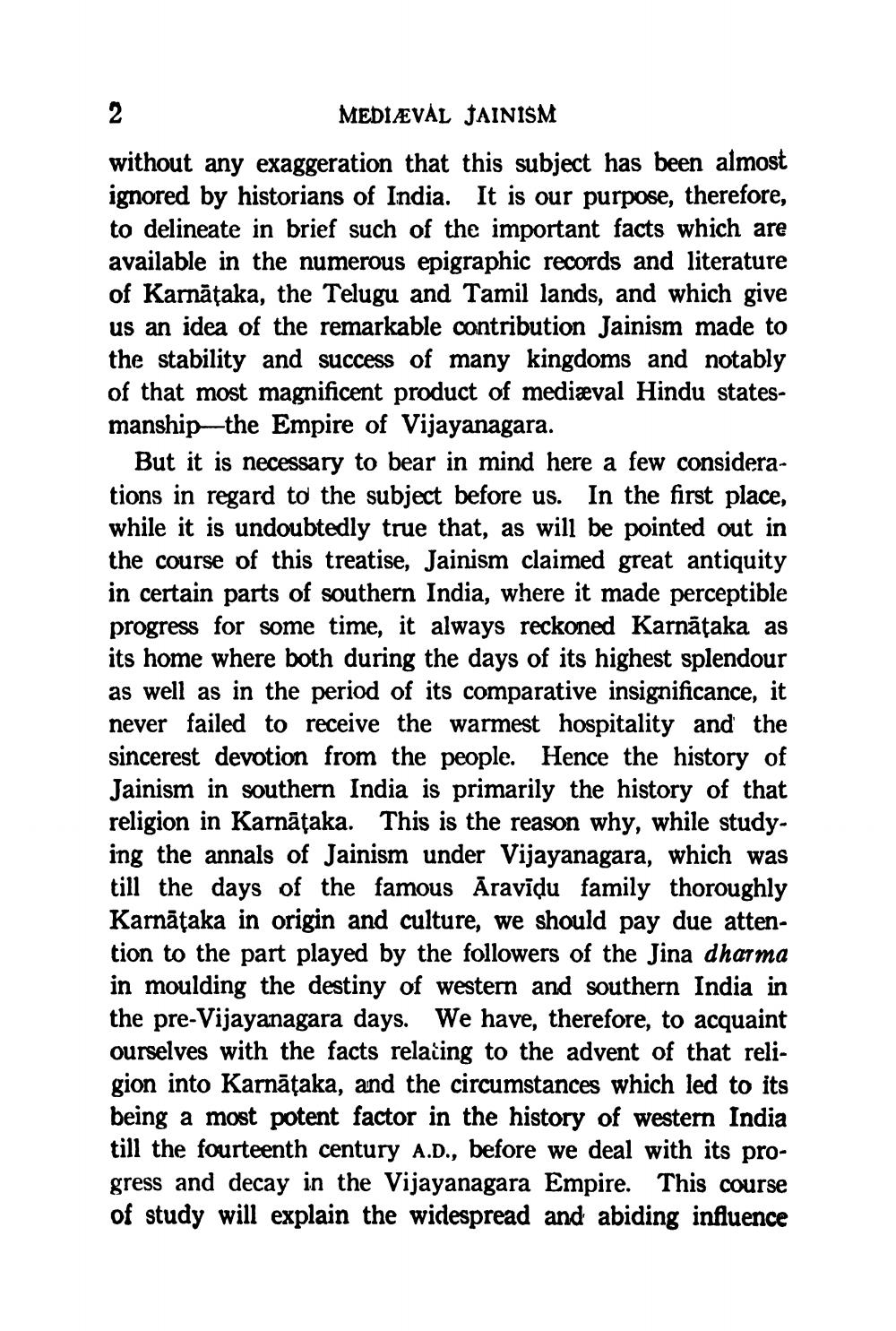________________
MEDIÆVAL JAINISM without any exaggeration that this subject has been almost ignored by historians of India. It is our purpose, therefore, to delineate in brief such of the important facts which are available in the numerous epigraphic records and literature of Karnāšaka, the Telugu and Tamil lands, and which give us an idea of the remarkable contribution Jainism made to the stability and success of many kingdoms and notably of that most magnificent product of mediæval Hindu statesmanship—the Empire of Vijayanagara.
But it is necessary to bear in mind here a few considerations in regard to the subject before us. In the first place, while it is undoubtedly true that, as will be pointed out in the course of this treatise, Jainism claimed great antiquity in certain parts of southern India, where it made perceptible progress for some time, it always reckoned Karnātaka as its home where both during the days of its highest splendour as well as in the period of its comparative insignificance, it never failed to receive the warmest hospitality and the sincerest devotion from the people. Hence the history of Jainism in southern India is primarily the history of that religion in Karnataka. This is the reason why, while studying the annals of Jainism under Vijayanagara, which was till the days of the famous Āravidu family thoroughly Karnataka in origin and culture, we should pay due attention to the part played by the followers of the Jina dharma in moulding the destiny of western and southern India in the pre-Vijayanagara days. We have, therefore, to acquaint ourselves with the facts relating to the advent of that religion into Karnātaka, and the circumstances which led to its being a most potent factor in the history of western India till the fourteenth century A.D., before we deal with its progress and decay in the Vijayanagara Empire. This course of study will explain the widespread and abiding influence




